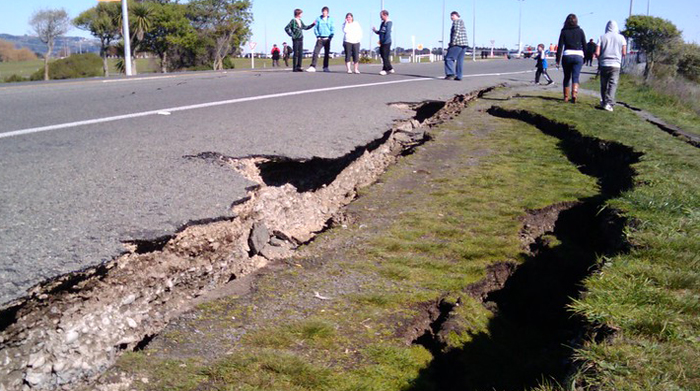Why Predicting Earthquakes is So Difficult

Image courtesy of Richard Walker under Attribution-NonCommercial 2.0 Generic License, resized to 700 x 391 pixels.
Predicting earthquakes is almost impossible, a reality that has once again come to the forefront on the heels of the recent earthquake disaster in Turkey. Scientists are working on improving this predictive capability, but the technology just isn’t good enough at this point to solve the problem.
The Trouble with Predicting Earthquakes
The U.S. Geological Survey indicates that 3 things are necessary for predicting earthquakes – the location where it will occur, the timing of when it will occur, and how large the event will be. Scientists have been trying to home in on these 3 metrics to improve earthquake predictive capability for at least the last 50 years, but they don’t have much to show for it.
Although there are extremely subtle signals that can be detected in seismic data to identify an earthquake, it is very difficult to monitor for these signals in nature. It’s one thing to simulate an earthquake in the laboratory to observe the signals, but there is so much noise in the natural environment that these signals basically get lost in the shuffle. Simply put, the Earth is constantly moving and rumbling, which makes early earthquake detection highly complex.
At this point, the best scientists can do is provide guesstimates in what are termed “hazard maps,” but these cannot predict the time of an occurrence, it only narrows the probability down to a several-year window. This helps with things like improving building standards in localized areas, but it does nothing from an early warning perspective.
Given the shortcomings in the traditional methods, scientists have pivoted to some non-traditional predictive criteria – for example, animal behavior, atmospheric electrical anomalies, and magnetic field disturbances. Scientists are also looking to leverage artificial intelligence algorithms based on lab results, but so far these learnings have not been successfully applied outside of a lab environment.
I believe that sooner or later, methods for predicting earthquakes will be developed that are highly accurate and can save lives. But chances are, we’re decades away from that reality.



